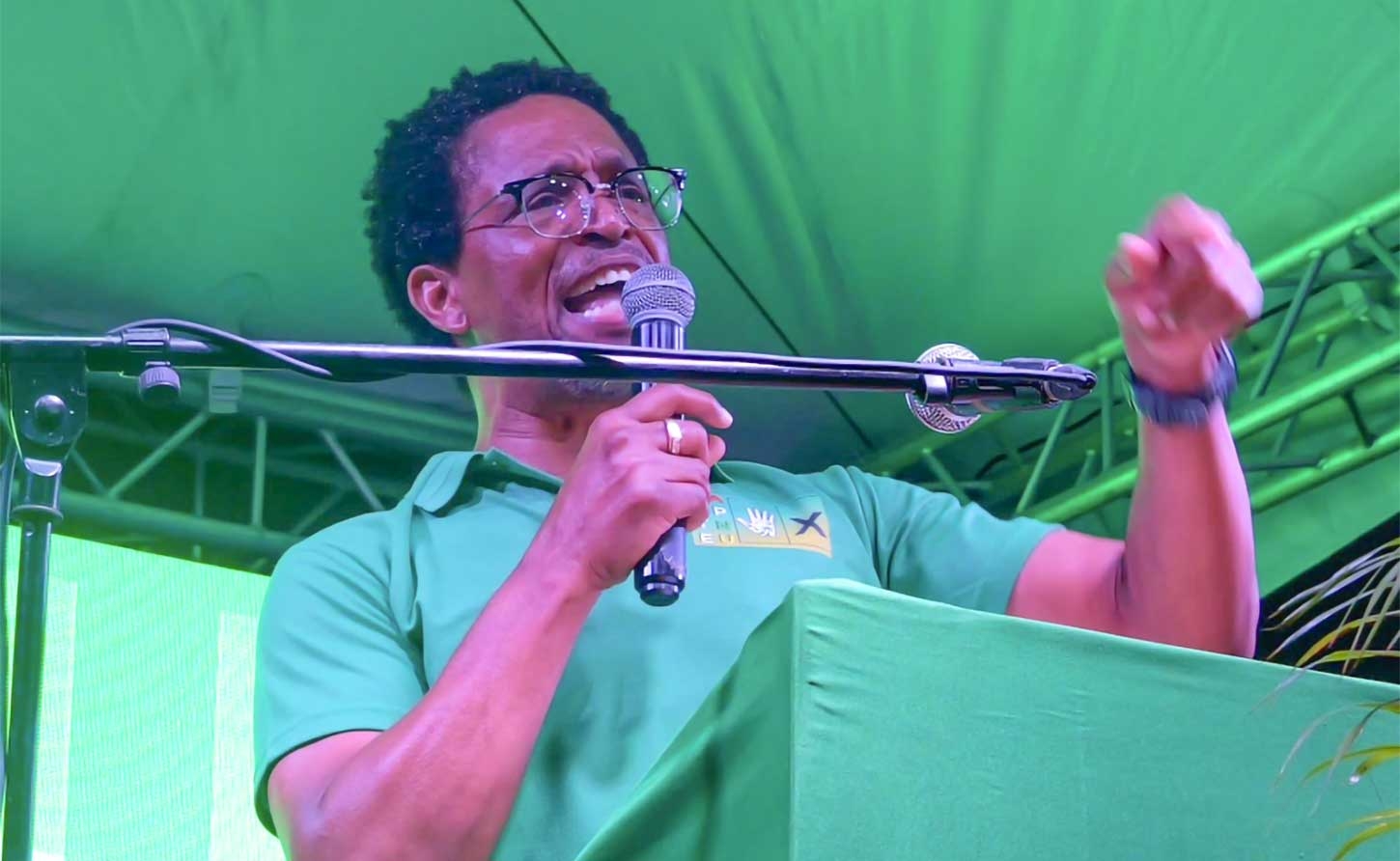GUYANA | Campbell Brings Business Acumen to Opposition's Economic Vision for September Vote

GEORGETOWN, Guyana, August 3, 2025 - Standing before an energized crowd of APNU supporters in Berbice, accomplished businessman Dr. Terrence Campbell delivered a compelling economic blueprint, promising 40,000 new jobs and rigorous fiscal oversight if his coalition can unseat the incumbent People's Progressive Party on September 1.
Campbell's data-driven critique of government spending and his calls for greater accountability reflect the opposition's determination to offer voters a credible alternative rooted in private sector experience.
Campbell, who brings decades of business expertise to APNU's candidate list after careful consideration of the country's trajectory, positioned himself as the economic reformer Guyana needs, promising job creation, enhanced public sector compensation, and a $400,000 tax threshold.
His pointed analysis of the PPP's oil wealth management raises important questions about fiscal sustainability and transparency that deserve serious consideration.
Economic Track Record: A Foundation for Growth
Campbell's presentation of comparative economic data underscores legitimate concerns about the trajectory under different administrations.
His citation of declining growth rates from 5.2% in 2013 to 3% in 2015 highlights the economic challenges the APNU+AFC coalition inherited, while their subsequent stabilization to 4.7% by 2019 demonstrates competent stewardship during the pre-oil era.
While the spectacular 43.5% growth in 2020 coincided with oil production beginning in December 2019, Campbell rightfully notes that his party managed the initial stages of this transformation responsibly.
The coalition's claimed achievement of creating 15,000 jobs and implementing 77% wage increases for public servants, if verified, would represent significant accomplishments given the economic constraints they faced.
Campbell's business background—including his role as opposition representative on the Natural Resource Fund Investment Committee—provides him with insider knowledge of government financial management that lends credibility to his critiques.
 Gas-to-Shore: Legitimate Concerns About Process
Gas-to-Shore: Legitimate Concerns About Process
Campbell's challenge to the Gas-to-Shore project's development process reflects genuine concerns about project management and cost escalation.
While multiple feasibility studies were indeed conducted between 2017-2021, Campbell's criticism may focus on the adequacy and implementation of these assessments rather than their complete absence.
The project's cost trajectory—from initial estimates around US$1.1 billion to current projections approaching US$2 billion—validates Campbell's concerns about financial oversight.
His insider position on the Natural Resource Fund Investment Committee gives him direct exposure to how these escalations impact national finances.
Even supportive analyses acknowledge the project's risks, with former Caribbean Development Bank economist Dr. Justin Ram suggesting costs could exceed US$2 billion.
Campbell's call for greater scrutiny reflects sound fiscal management principles that should govern such massive infrastructure investments.
Oil Fund Stewardship: A Vision for Sustainability
Campbell's critique of the government's oil revenue spending patterns reflects a legitimate philosophical divide about intergenerational equity and economic sustainability.
His observation that spending has increased from 75% to 95% of annual oil revenues demonstrates concerning trajectory toward complete dependence on petroleum wealth.
The APNU proposal to save 25% of oil revenues annually, citing Ghana's transparent accounting model, offers voters a concrete alternative focused on long-term stability.
Campbell's promise that "if they build a dog kennel, it's accounted for" resonates with citizens seeking greater transparency in how their oil wealth is managed.
His exclusion from the Natural Resource Fund board, despite serving as the opposition's appointed representative on the Investment Committee, highlights concerning governance trends that merit voter attention.
Campbell's business experience and financial expertise make his marginalization from key oversight roles particularly problematic for democratic accountability.
Electoral Opportunity and Campbell's Leadership
Campbell's emergence as a key opposition voice comes at a crucial moment when Guyana needs experienced economic leadership. His decision to join APNU after extensive discussions with Norton demonstrates thoughtful political engagement rather than opportunistic party-switching.
While polling suggests the PPP maintains advantages, Campbell's business credentials and policy specificity could help the opposition connect with voters concerned about economic management and corruption.
His promise of detailed accountability—"we will account to you because it's your money"—offers a compelling contrast to perceived government secrecy.
The PPP's July rally may have drawn large crowds, but Campbell's focus on fiscal responsibility and job creation addresses bread-and-butter issues that resonate across ethnic and political lines.
A Choice Between Economic Philosophies
Campbell's rally presentation offers Guyanese voters a substantive alternative economic vision emphasizing private sector growth, fiscal prudence, and transparent governance.
His critique of infrastructure quality—citing personal experience with traffic delays on poorly constructed roads—demonstrates practical understanding of how government spending translates to citizen welfare.
His business background provides credibility for promises about economic diversification and job creation that transcend political rhetoric.
Campbell's call for saving oil revenues while investing in sustainable development represents sound economic planning that could protect Guyana from the resource curse that has afflicted other petroleum-rich nations.
The Bottom Line: Campbell brings impressive credentials and specific proposals to the opposition's economic platform, offering voters genuine policy alternatives rooted in business experience and fiscal responsibility.
His critiques of government spending patterns and transparency deficits reflect legitimate concerns about long-term economic sustainability.
With September 1 approaching, his emergence as a key economic voice provides APNU with the expertise needed to present a credible governing alternative focused on accountable management of Guyana's oil wealth and sustainable job creation for all citizens.
-30-
